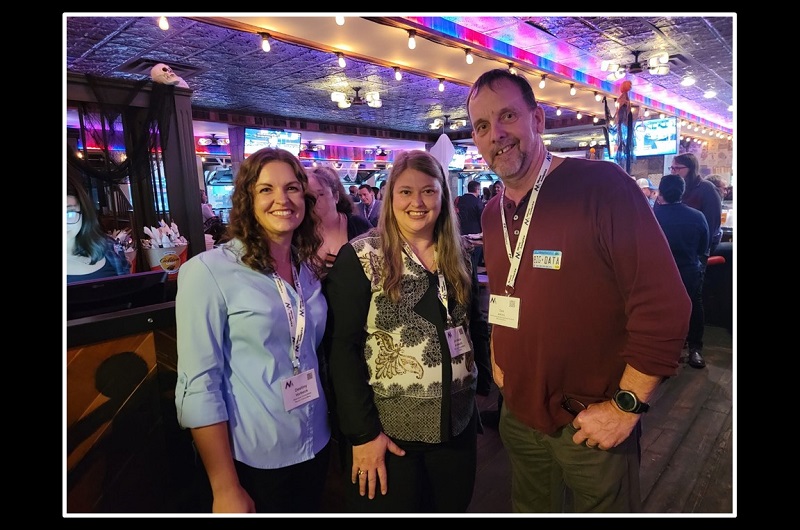Event Summary December 8, 2022
Women in Analytics and Data Science Conference
Minneapolis, MN
On October 24th, Destiny Vorbeck and Jessica Albrecht attended the MinneAnalytics Women in Analytics and Data Science Conference. The conference brings together leaders, experts, and anyone interested in analytics, especially those who identify as women and non-binary, to share knowledge, make connections, and inspire one another. This event was intended to provide a platform for women in data science and included technical sessions, business applications, and panel discussions.
The speakers shared their unique experiences and knowledge within the wide realm of analytics. The event catered to a wide array of interests but had a multitude of specialists within the healthcare and consulting industries who provided information that will benefit Trexin’s Analytics Capability.
Key speakers were:
- Krishna Kalari, PhD – Mayo Clinic, Associate Professor: Precision Medicine and Data Analytics
- Bonnie Holub, PhD – Infosys Consulting, Associate Partner: Industry Best Practices for Industrializing AI Applications
- Mikayla Schreiber – Optum, Senior Consultant, Health Equity Analytics and Ali Shirvani-Mahdavi, PhD – Optum, Vice President, Health Equity Analytics: Health Equity Analytics: Data Infrastructure and Modeling Approaches
- Elena Willmot, MS – Essentia Health, Data Scientist and Niall Klyn, PhD – Essentia Health, Data Scientist: Visualizing Hospital Patient Survey Responses with Topic Modeling
Some key takeaways and knowledge gained from the conference includes:
- A Bigram/Trigram/n-gram Convolutional Neural Network is a preferred practice regarding classification; the industry is shifting toward complex Natural Language Processing, which is in part due to the increased use of tools like Keras, TensorFlow, or PyTorch.
- When looking at ways to increase the use of Machine Learning across various groups of individuals with varying experiences, AutoML tools may be a great option due to their low-code to no-code capacity when dealing with simple analytics.
- There are two main types of data scientists: a Citizen Data Scientist and an Expert Data Scientist. A Citizen is a SME with mediocre experience who is not technical. An Expert has low risk but a high cost, is not a domain expert, but can perform ethical modeling.
- The requirements for mature AI include that it is properly built, produced, consumed, and maintained.
- Data Culture needs to have a strong data strategy and campaign in order to be embraced by a company or group of individuals. This means that there cannot be any data heroes (a single individual who knows everything about the data) and that it must be brought into the company culture (so that it does not remain a fad).
- To create a new culture, you need to start an internal user group, take baseline measurements, and host open office hours with data experts. You do not need executive sponsorship, fancy tools, generic data literacy programs, but must have a measure of success and not separate data governance from data culture.
- There is still plenty of room for improvement when providing care to people of color, especially women of color within the prenatal space. Women of color are at a dramatically higher risk of pregnancy complications and maternal death due to the inadequate care that they receive due to inherent biases.
- When reviewing open surveys provided by patients on their experiences with a hospital stay, we can use complex CNN’s and Tableau to categorize the data and visualize the experiences of the patients based on the quality of their care.
To learn about Trexin’s Analytics Capability, please click here:

